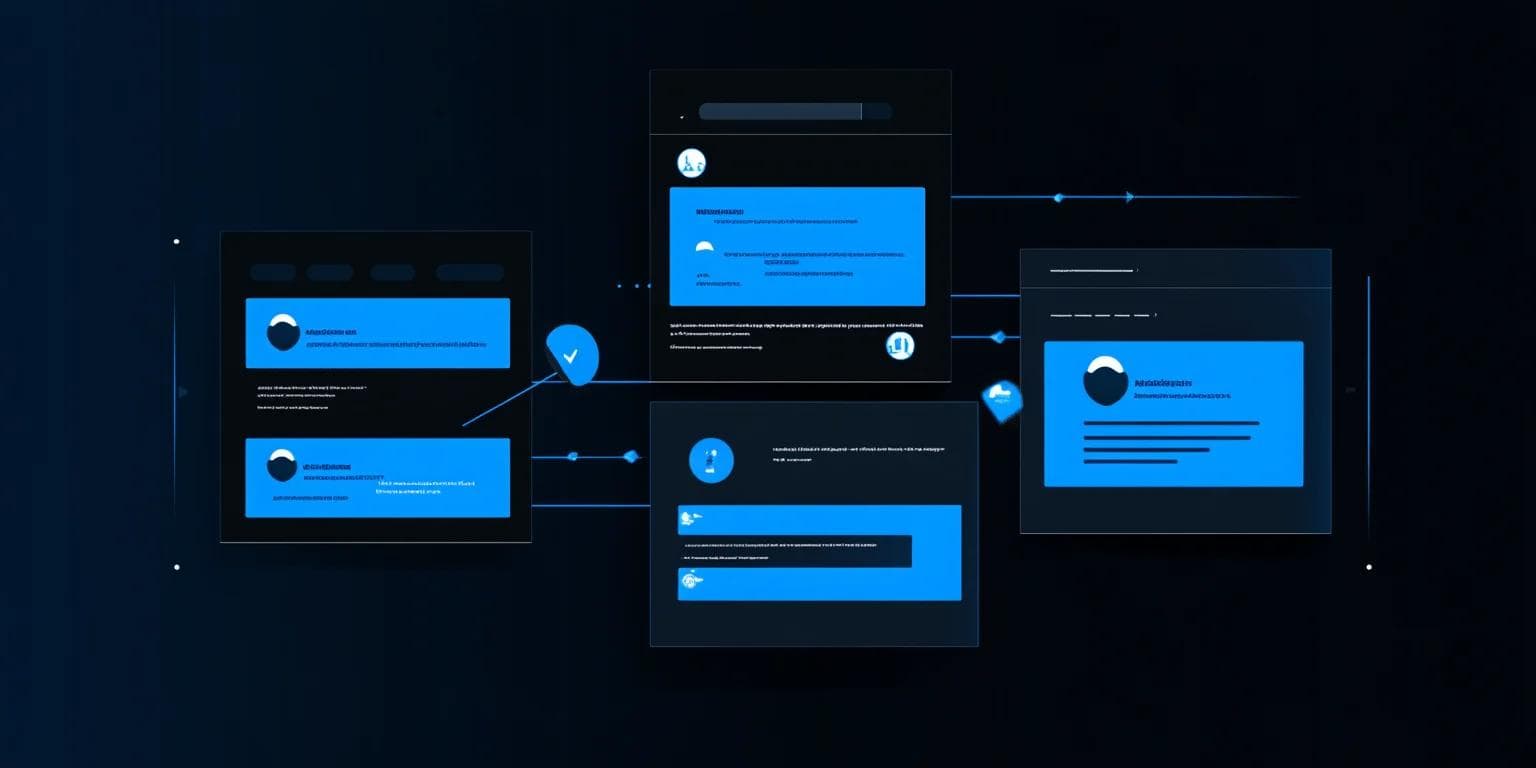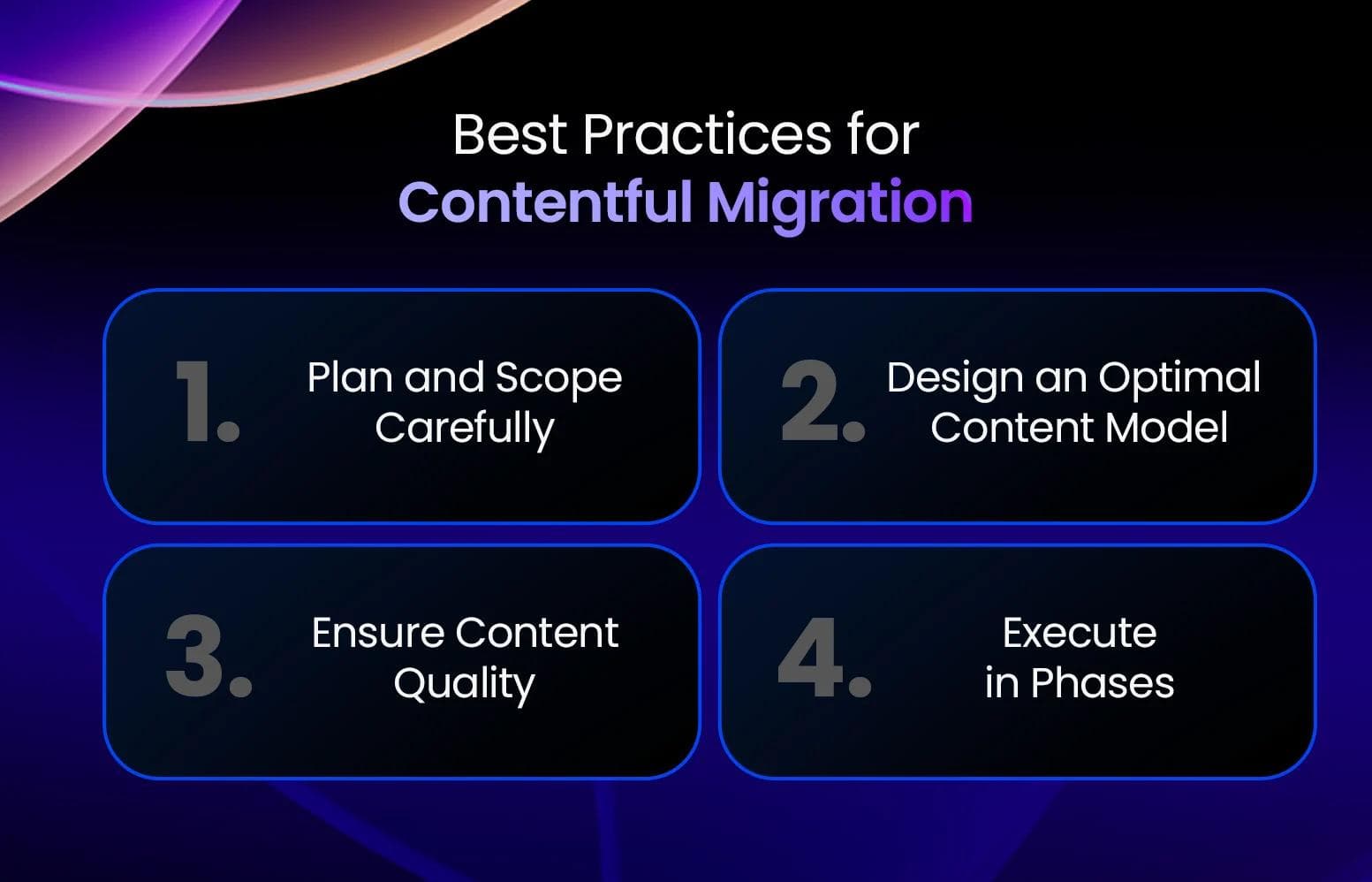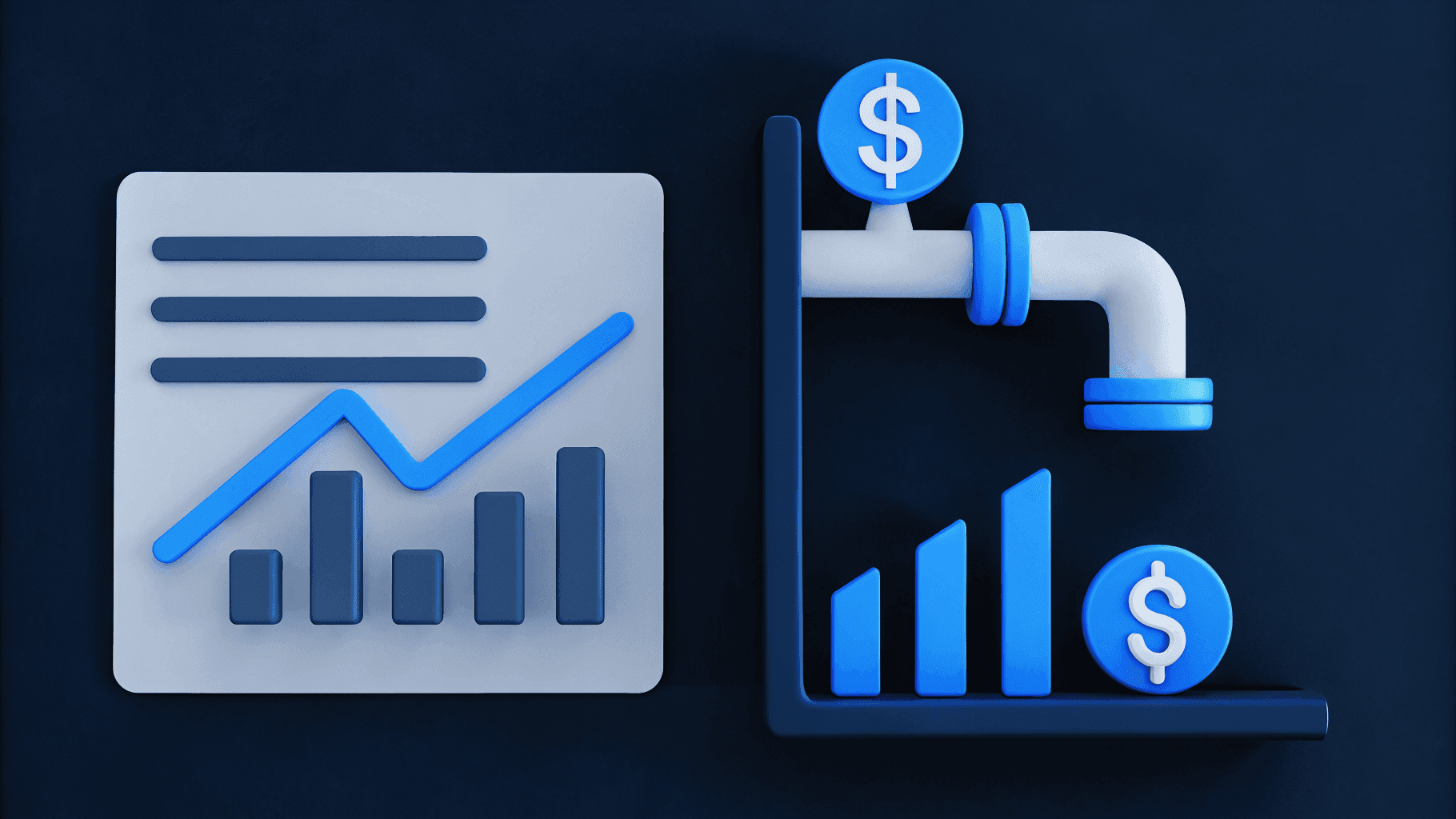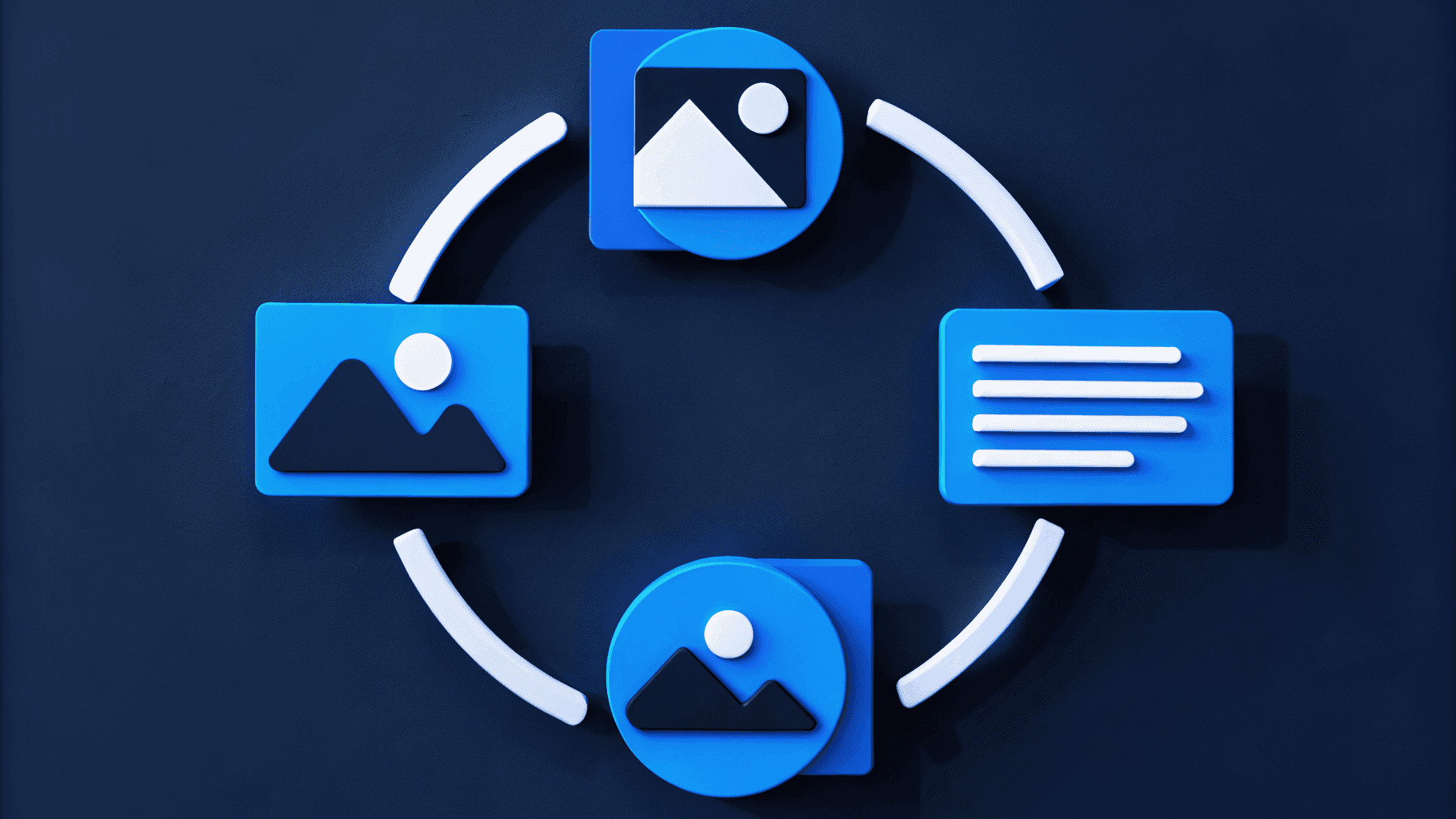Tuesday, November 19, 2024
Contentful Migration Checklist: How to Migrate Your Contentful Website Seamlessly

Contentful powers over 46,000 websites, which speaks on itself about its widespread adoption and reliability in the CMS landscape.
In brief:
- Businesses are increasingly moving to Contentful for its headless architecture, flexibility, and ability to streamline omnichannel content delivery.
- Detailed preparation, including content audits and stakeholder alignment, can result in a smooth transition without disrupting workflows.
- Migration requires thoughtful design of a content model to address both technical dependencies and user needs to maximize Contentful’s capabilities.
- Technical migration, continuous testing, validation, and team training are essential to fully leverage Contentful's potential and ensure long-term success.
conversionPanelReference{
"_key": "217b298d-cda4-4200-ade5-5dde83875077",
"_type": "conversionPanelReference",
"children": null,
"level": null,
"listItem": null,
"markDefs": null,
"style": null
}Why Should You Consider Migrating to Contentful?
Structured content enables easier reuse across channels. Instead of creating duplicate content for different platforms, you can manage a single source of truth. This approach saves time and ensures consistency.
Modular content blocks allow for flexible page building. You can mix and match these blocks to create various layouts and designs without starting from scratch each time. This flexibility supports rapid content updates and iterations.
Enhanced Developer Experience
Contentful's API-first approach facilitates seamless integrations. Developers can connect Contentful with other systems and tools using robust APIs. This capability streamlines workflows and enhances productivity.
The decoupled architecture allows parallel development. Front-end and back-end teams can work independently, speeding up the development process. This separation also makes it easier to implement changes and updates without disrupting the entire system.
Streamlined Editorial Workflows
Contentful offers an intuitive web app for content creators. The user-friendly interface simplifies content creation and management, reducing the learning curve for new users. Efficient workflows are crucial for maintaining productivity, as highlighted in the efficient content workflows guide.
Granular user permissions and roles provide control over who can access and modify content. This feature ensures that only authorized personnel can make changes, enhancing security and accountability.
Built-in collaboration and versioning features support teamwork. Multiple users can work on the same content simultaneously, and version history allows you to track changes and revert to previous versions if needed.
Scalability and Performance
Contentful's cloud-native infrastructure ensures high availability. The platform can handle large volumes of traffic and data without compromising performance. This reliability is crucial for maintaining a seamless user experience.
A global CDN (Content Delivery Network) ensures fast content delivery. By caching content closer to users, the CDN reduces latency and improves load times. This speed enhances user satisfaction and engagement.
How does Contentful Migration work?
Migrating to Contentful involves several key steps to ensure a smooth transition.
First, assess your existing content and define the migration scope. Determine what content needs to move and what can stay behind. This step helps in understanding the volume and type of content you will handle.
Next, design a content model in Contentful that fits your requirements. Identify the content types, fields, and relationships necessary for your new setup. This model will serve as the blueprint for your migration.
Then, extract content from your source CMS using APIs or export tools. Gather all the data you plan to migrate, ensuring you have complete and accurate information.
Transform and clean up the content to match Contentful's structure. This step involves reformatting data, removing unnecessary elements, and ensuring consistency. Properly formatted content will integrate seamlessly into the new system.
Write migration scripts to import the content into Contentful. These scripts automate the migration process, reducing manual effort and minimizing errors. Ensure the scripts are well-tested and reliable.
Finally, validate and test the migrated content for completeness and accuracy. Check that all content has transferred correctly, and perform thorough testing to identify any issues. This step ensures that your new Contentful setup functions as expected.
What Are the Best Practices for Contentful Migration?
Follow these steps to ensure your Contentful migration goes without a hitch.
1. Plan and Scope Carefully
Start by auditing your content to determine what needs migration. Prioritize high-value content and identify any outdated or irrelevant pieces that can be left behind. This step helps streamline the migration process and ensures you focus on the most important content.
Identify content relationships and dependencies. Understand how different pieces of content are linked, such as references between articles or dependencies on specific media assets. Mapping these relationships is crucial for maintaining content integrity during migration.
Estimate the migration timeline and resources needed. Consider the volume of content, the complexity of the content model, and the available resources. A realistic timeline helps manage expectations and ensures a smooth migration process.
2. Design an Optimal Content Model
Analyze your content types, attributes, and relationships. Break down your existing content into distinct types and identify the key attributes for each. This analysis helps create a structured and organized content model in Contentful.
Optimize the content model for reusability, scalability, and performance. Design content types and fields that can be easily reused across different pages and channels. Ensure the model can scale with your content needs and supports high performance.
Iterate and refine the content model based on stakeholder feedback. Engage with content creators, developers, and other stakeholders to gather input and make necessary adjustments. This collaborative approach ensures the model meets everyone's needs and expectations.
3. Ensure Content Quality
Establish content governance policies and standards. Define clear guidelines for content creation, formatting, and management. These policies help maintain consistency and quality across all content.
Perform data cleanup and transformation before migration. Remove any duplicate, outdated, or irrelevant content. Transform the remaining content to match the new structure in Contentful. This step ensures clean and accurate data in the new system.
Implement validation checks and error handling. Set up automated checks to verify content accuracy and completeness during migration. Address any errors or issues promptly to ensure a smooth transition.
4. Execute in Phases
Migrate content in batches to minimize risk. Break down the migration process into smaller, manageable phases. This approach reduces the impact of potential issues and allows for easier troubleshooting.
Perform thorough testing at each phase. Validate the migrated content to ensure it meets the expected standards. Test functionality, links, and relationships to confirm everything works as intended.
Provide training and support for content editors. Equip your team with the knowledge and tools they need to use the new system effectively. Offer training sessions, documentation, and ongoing support to ensure a smooth transition for everyone involved.

How to Prepare for Contentful Migration
Before you actually migrate, there are some things you should make sure you do.
Align Stakeholders
Start by communicating the benefits and timeline of the migration to all involved parties. Clear communication ensures everyone understands the advantages and the expected duration of the process. This step helps build support and sets realistic expectations.
Identify key stakeholders and decision makers early on. These individuals will play a significant role in guiding the migration and making crucial decisions. Knowing who they are allows you to streamline communication and decision-making processes.
Establish roles and responsibilities for each team member. Define who will handle specific tasks, such as content extraction, transformation, and validation. Clear roles prevent overlap and ensure accountability throughout the migration.
Audit Existing Content
Conduct an inventory of your existing content types, volume, and relationships. Document all content elements, including articles, images, and metadata. This inventory provides a comprehensive view of what you have and helps in planning the migration.
Assess the quality of your content and identify any gaps. Evaluate the relevance, accuracy, and completeness of each piece. Identifying gaps allows you to address issues before migrating, ensuring only high-quality content moves to the new system.
Determine which content to migrate, archive, or retire. Not all content needs to move to Contentful. Decide what is still relevant and valuable, what can be archived for future reference, and what should be retired. This step streamlines the migration and reduces clutter.
Design Content Model
Define content types and attributes in Contentful that align with your needs. Identify the various types of content you will manage, such as blog posts, product descriptions, and user profiles. Specify the attributes for each type, like titles, descriptions, and tags.
Map source content fields to Contentful fields. Ensure each piece of data from your current system has a corresponding field in Contentful. This mapping ensures a smooth transition and maintains data integrity.
Optimize the content model for reuse and scalability. Design the model to support modular content blocks and flexible layouts. This approach allows for easy updates and scalability as your content needs grow.
Develop Migration Plan
Choose your migration plan, whether manual or automated. Manual migration involves manually transferring content, suitable for smaller projects. Automated migration uses scripts and tools to transfer large volumes of content efficiently.
Identify the migration tools and scripts needed for the process. Research and select tools that fit your requirements, such as APIs for data extraction and transformation scripts. Having the right tools in place ensures a smooth and efficient migration.
Set a timeline, milestones, and success criteria for the migration. Define the start and end dates, key milestones, and what success looks like. This plan keeps the project on track and allows you to measure progress and address issues promptly.
Our Take on Contentful Migration
Migrating to Contentful offers a strategic advantage by decoupling content from presentation, which results in a more flexible and scalable digital experiences.
However, it's very important to recognize that this transition requires detailed planning and a clear understanding of your existing content architecture.
A common oversight is underestimating the complexity of content modeling in a headless CMS environment. Webstacks advises conducting a thorough content audit to identify redundancies and inconsistencies before migration. Also, involving cross-functional teams early in the process ensures that both technical and editorial needs are addressed, leading to a smoother transition and more effective use of Contentful's capabilities.
See the Webstacks difference: schedule a brief discovery call today. Visit Webstacks to learn how we can help you achieve your website goals. Let us guide you through a seamless Contentful migration and elevate your digital presence.



